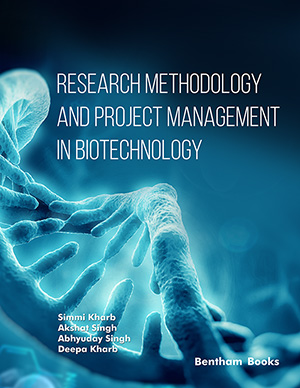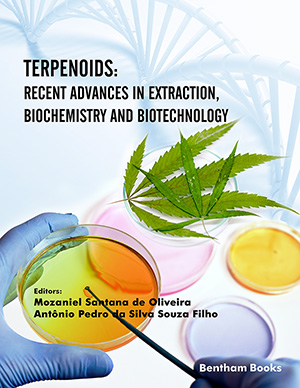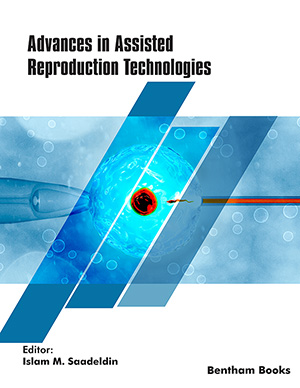
Abstract
Spaceflight presents many challenges and opportunities for understanding human physiology and for administering healthcare in a harsh, remote and resource-limited environment. Technologies and countermeasures developed for space must be portable, minimize invasiveness, and be easy to use and maintain. Medical devices must also be robust and preferably require low power and consumables. Solutions meeting these standards for spaceflight have potential commercial advantages over similar technologies developed only for Earth markets. Many technologies for space have Earth-based spin-offs. In medicine, recent advances from space enhancing terrestrial healthcare delivery include, but are not limited to, (1) new training methods, and advanced diagnostic and therapeutic applications for ultrasound, (2) near-infrared spectroscopy for portable brain imaging, and (3) non-invasive assessment of intracranial pressure. With the assistance of the National Space Biomedical Research Institute (NSBRI), funding for biomedical innovation and applications for space includes a program aimed at small companies, with commercialization support competitively awarded to transition technologies from bench to market.
Keywords: Astronaut, biomedical, commercialization, exploration, health, healthcare, innovation, intracranial pressure, medical, microgravity, near-infrared spectrocopy, non-invasive, public private partnership, space, spaceflight, technology, ultrasound.
Current Biotechnology
Title:Biomedical Advances for Spaceflight Improve Healthcare on Earth
Volume: 2 Issue: 3
Author(s): Dorit B. Donoviel and Jeffrey P. Sutton
Affiliation:
Keywords: Astronaut, biomedical, commercialization, exploration, health, healthcare, innovation, intracranial pressure, medical, microgravity, near-infrared spectrocopy, non-invasive, public private partnership, space, spaceflight, technology, ultrasound.
Abstract: Spaceflight presents many challenges and opportunities for understanding human physiology and for administering healthcare in a harsh, remote and resource-limited environment. Technologies and countermeasures developed for space must be portable, minimize invasiveness, and be easy to use and maintain. Medical devices must also be robust and preferably require low power and consumables. Solutions meeting these standards for spaceflight have potential commercial advantages over similar technologies developed only for Earth markets. Many technologies for space have Earth-based spin-offs. In medicine, recent advances from space enhancing terrestrial healthcare delivery include, but are not limited to, (1) new training methods, and advanced diagnostic and therapeutic applications for ultrasound, (2) near-infrared spectroscopy for portable brain imaging, and (3) non-invasive assessment of intracranial pressure. With the assistance of the National Space Biomedical Research Institute (NSBRI), funding for biomedical innovation and applications for space includes a program aimed at small companies, with commercialization support competitively awarded to transition technologies from bench to market.
Export Options
About this article
Cite this article as:
Donoviel B. Dorit and Sutton P. Jeffrey, Biomedical Advances for Spaceflight Improve Healthcare on Earth, Current Biotechnology 2013; 2 (3) . https://dx.doi.org/10.2174/22115501113029990018
| DOI https://dx.doi.org/10.2174/22115501113029990018 |
Print ISSN 2211-5501 |
| Publisher Name Bentham Science Publisher |
Online ISSN 2211-551X |
Call for Papers in Thematic Issues
Age Reversal using transient epigenetc reprogramming with the OSK Yamanaka Factors
Aging is a complex biological process characterized by a gradual deterioration of physiological functions and an increased vulnerability to disease. Recent advancements in the field of regenerative medicine have shown promising avenues for combating aging. Among these, partial epigenetic reprogramming, specifically utilizing the Yamanaka factors, has been shown to reverse ...read more
Bioinformatic Analysis of Regulated Cell Death in Chronic and Acute Inflammatory Diseases
In the intricate realm of inflammatory diseases, delving into the complexities surrounding regulated cell death emerges as an indispensable and forefront area of exploration. Understanding the intricacies of how cells are regulated to undergo death in inflammatory conditions not only represents a pivotal frontier in biomedical research but also holds ...read more
Feeding a vegan World
The Eat-Lancet Planetary diet recommends at least 2/3 plant and microbial sources in the food protein portion. Such diet is recommended against obesity, cancer and to limit global warming, and might get more and more incentives in the next years. We thus need massive amounts of Plant-based food, and the ...read more
Leveraging AI for personalized pediatric neurodevelopmental support
Personalized medicine in pediatrics is a moving target dedicated to finding the right treatment, at the right time, for each individual child in each stage of development. Child development is a highly personal process, unique to each individual, something which is even more apparent in the development of children with ...read more
Related Journals
 23
23
- Author Guidelines
- Graphical Abstracts
- Fabricating and Stating False Information
- Research Misconduct
- Post Publication Discussions and Corrections
- Publishing Ethics and Rectitude
- Increase Visibility of Your Article
- Archiving Policies
- Peer Review Workflow
- Order Your Article Before Print
- Promote Your Article
- Manuscript Transfer Facility
- Editorial Policies
- Allegations from Whistleblowers
- Announcements
Related Articles
-
Novel Therapeutic Strategies for Dementia
CNS & Neurological Disorders - Drug Targets Neuroprotective Role of Agmatine in Neurological Diseases
Current Neuropharmacology Pharmacological Countermeasures for the Acute Radiation Syndrome
Current Molecular Pharmacology TLR7/9 Antagonists as Therapeutics for Immune-Mediated Inflammatory Disorders
Inflammation & Allergy - Drug Targets (Discontinued) Aquaporins and Roles in Brain Health and Brain Injury
Mini-Reviews in Medicinal Chemistry Nanomaterials for Neurology: State-of-the-Art
CNS & Neurological Disorders - Drug Targets Adolescence and Borderline Behavior - Between Personality Development and Personality Disorder
Adolescent Psychiatry Estrogen Regulation of MicroRNA Expression
Current Genomics Clinical Efficacy of the Huo Xue Hua Yu Method Combined with Aspirin in the Treatment of Acute Cerebral Infarction: A Systematic Evaluation and Meta-analysis
Current Pharmaceutical Design NPY Family of Hormones: Clinical Relevance and Potential Use in Gastrointestinal Disease
Current Topics in Medicinal Chemistry MR Spectroscopy in Metabolic Profiling Studies of Stem Cells
Current Medical Imaging Angiogenic and Antiangiogenic Factors in Proliferative Diabetic Retinopathy
Current Diabetes Reviews Diallyl Sulfide: Potential Use in Novel Therapeutic Interventions in Alcohol, Drugs, and Disease Mediated Cellular Toxicity by Targeting Cytochrome P450 2E1
Current Drug Metabolism P2Y<sub>6</sub>R: A Promising New Target in Inflammatory Diseases and Advances in its Antagonists
Current Medicinal Chemistry Cancer Stem Cells: The Emerging Challenge of Drug Targeting
Current Medicinal Chemistry Giant Cell Arteritis – A Series of Cases and Review of Literature
Current Rheumatology Reviews Therapeutic Modulation of Growth Factors and Cytokines in Regenerative Medicine
Current Pharmaceutical Design Acetaminophen (Paracetamol) and Injury in the Cardiovascular System
Vascular Disease Prevention (Discontinued) Animal Peptides Targeting Voltage-Activated Sodium Channels
Current Pharmaceutical Design Up-regulation of microRNA-16 in Glioblastoma Inhibits the Function of Endothelial Cells and Tumor Angiogenesis by Targeting Bmi-1
Anti-Cancer Agents in Medicinal Chemistry





















